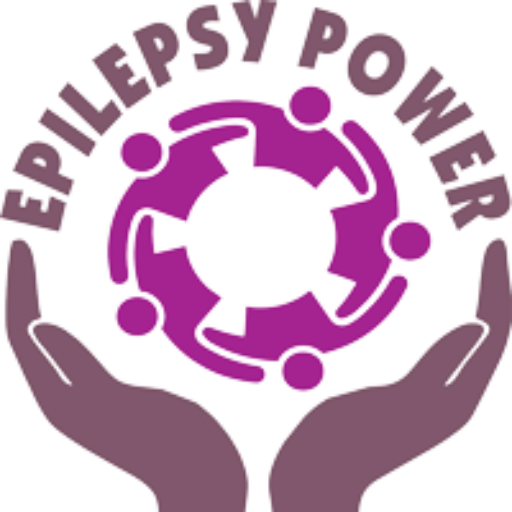- Introduction
- Section 1: Choosing appropriate job
- Section 2: "External” limitations: environmental risks, seizures, physical and cognitive limitations
- Section 3: “Internal” limitations
- Concluding remarks
- Quiz
Total Participants: 1
Introduction
Epilepsy is a neurological disorder that can affect work capacity in different ways. When well-controlled, it may remain hidden, allowing you to pursue most jobs. However, some jobs may not be suitable for people with epilepsy and/or other disabilities. These restrictions often relate to physical demands or the specific conditions that could trigger seizures. Choosing the right job requires a thorough self-assessment through understanding your condition and its effects, with guidance from your neurologist, as well as evaluating your abilities in light of your education.
Importance of seizure control and consequences of seizures at work
When choosing a job, the first thing to consider is your seizure control. If you are seizure free, you can apply for any position without significant concerns; if you suffer from frequent seizures, you should avoid certain kinds of jobs. The suitability of a job will depend on seizure type, frequency and potential consequences of your seizures.
For example, when suffering from tonic-clonic seizures, tonic seizures or atonic seizures, you should consider the associated fall risks, and therefore avoid working with potentially dangerous machinery and tools, blades or at high altitudes. Even when you have absence or focal seizures with awareness impairment, you could fall, or your concentration could be impaired; so it is important to steer clear of hazardous environments.
For focal seizures, the impact on your job depends on the type of the “system” involved. Sometimes the seizures will consist only of an aura, which might include physical symptoms (epigastric sensation/pain/paresthesia), or sensory symptoms (such as auditory visual changes). In these cases, you just have to wait for the end of the seizure. However, in other cases, the aura may precede a more significant seizure (with motor/cognitive symptoms). In these situations it’s important to alert those around you and move to a safe place. If the seizure progresses beyond the aura, you should consider the risks of an incoming more intense seizure. Whereas, if the seizure is limited to the aura, the symptoms might not impair your capacity to work, apart from the potential effects during the postictal period.
Facing driving restrictions
Driving limitations are closely linked to seizure frequency. In general, people with well-controlled epilepsy should face no restrictions for jobs; but roles that involve driving, operating dangerous machinery or flying can pose some challenges. Where driving is concerned, it is important to distinguish between having epilepsy and having seizures. In some countries such as Italy, a person with well-controlled epilepsy who is taking anti-seizure medication and has been seizure-free for 12 months, is legally entitled to drive motor vehicles for personal transportation. A person who adheres fully to medical treatment but continues to experience seizures is not allowed to drive, either in daily life or for work. Consequently, if you still suffer from frequent seizures, you should avoid jobs involving driving and dealing with machinery. The law is particularly restrictive for jobs that require driving heavy trucks and public transport vehicles, often requiring a 10-year seizure-free period and EEG without any epileptiform abnormalities. Working near dangerous machinery is also risky if your seizures are not well-controlled, as you cannot control your movements or surroundings during a seizure. Therefore, specific precautions should be taken for seizures occurring in the work environment. Please check the requirements of your specific legislations, because they could differ across countries (see 3rd paragraph – provided materials).
As for reaching your job, if you suffer from frequent seizures and you cannot drive, you could ask to work from home or for a disability allowance for public transport.
Certain occupations, such as military service, particularly with roles which require individuals to drive and operate machinery, may not be suitable for people with epilepsy as they demand a ‘seizure-free status’. There are some exceptions: if you had epilepsy as a child or only have had a single seizure more than 10 years ago, indicating a period of remission, then it is possible that you can join the army.
However, no blanket restrictions should be imposed – you should take in account individual educational qualifications and personal circumstances to guide you to the right career choice.
Methods
We will provide you some general information about driving restrictions and type of seizures; links to specific legislation for each Country (Italy, Bulgaria, Germany, Ireland, France).
Provided material
If you want to know about driving limitations:
https://www.youtube.com/watch?v=FpHx60FleEg
You can watch these videos if you want to know more about focal seizures:
www.youtube.com/watch?v=L9kR-AMgmWM
Tonic-clonic seizures:
https://www.youtube.com/watch?v=7N74EFyEhUA
Myoclonic seizures:
https://www.youtube.com/watch?v=unVInJp1ZqE
Atonic seizures:
https://www.youtube.com/watch?v=oXE3HtR6B3I
Tonic seizures:
https://www.youtube.com/watch?v=soe05MfrPlo
Legislation Links:
- Italy: https://www.normattiva.it/uri-res/N2Ls?urn:nir:stato:decreto.legislativo:2011-04-18;59~art7
- Bulgaria: we have not found any specific laws
- Germany: https://www.buzer.de/gesetz/8310/a155775.htm?k=1
- Ireland:https://www.epilepsy.ie/content/driving#:~:text=For%20most%20people%20with%20epilepsy,EB%2C%20M%20and%20W)
- France:https://www.epilepsie-france.com/epilepsie-et-vous/lepilepsie-et-vous-mobilite-transports/#:~:text=En%20revanche%20apr%C3%A8s%20une%20p%C3%A9riode,d’obtenir%20un%20permis%20inconditionnel.
